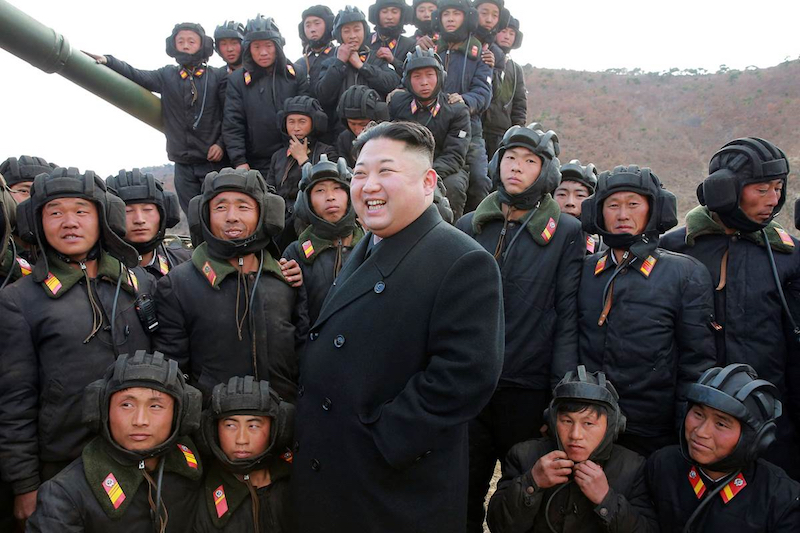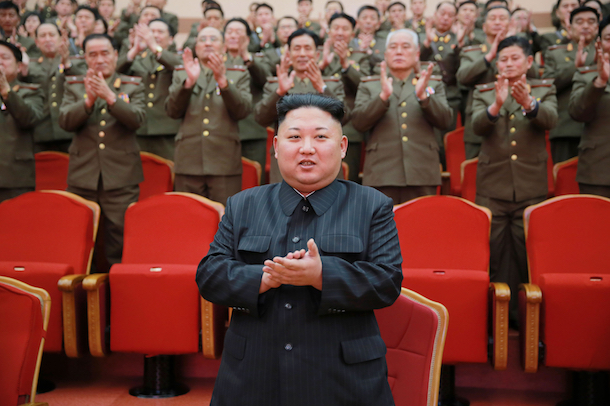
North Korea: The Grandmaster of Mercurial Power Balancing
North Korea has played the game of mercurial power balancing masterfully since 1950. Few news reports and political commentators analyzed Kim Jong Un’s leadership in the context of his predecessors. The current North Korean leader has made every attempt to purge the reins of power to ensure that no one can claim to be the primary influence in his decision-making. Kim’s brother, aunt, and uncle were all summarily executed because of the vague existential threat they posed to the current leadership apparatus and the leader of the totalitarian state. Kim Jong Un is in no uncertain terms the key decision-maker with regard to the current power balancing that is leaving the East Asian region in the metaphorical dark. This is being implemented for the sole benefit of the North Korean regime which it has accomplished since the inception of the country.
Kim Il Sung, the founding father of North Korea and grandfather of the current leader, was the undisputed grandmaster of power balancing. Namely, Kim Il Sung successfully sought to encourage Josef Stalin and Mao Zedong to compete for the mantle of “protector and progenitor of international communism.”
Kim Il Sung ruthlessly pitted Stalin and Mao against each other in the form of fostering rivalry and competition against established communist powers to prove who will be the key factor in allowing the fledgling North Korean regime to be successful in its fight against capitalist South Korea. The Korean War formed the chess board in deciding whether North Korea would side with the Soviet Union or China in the international alliance of Communist states. Kim Il Sung exploited this rivalry to his advantage by receiving competitive offers of financial, military, and diplomatic support from his Communist brethren.
Kim Jong Il, Kim Il Sung’s son and successor as well as father of Kim Jong Un, entered the game of nuclear politics in a bid to further strengthen his control of power and importance on the world stage. The crux of this situation reached its height when former President Richard Nixon advised President Bill Clinton on North Korea in the White House and Secretary of State Madeleine Albright negotiated a tete-a-tete with the North Korean leadership in Pyongyang.

This American attempt to deal with North Korea on favorable terms was implemented in the grand scheme of attempting to lessen the influence of China, which eternally views North Korea as “its little brother.” Kim Jong Il understood that this balancing act between the United States and China was the essential bargaining chip that helped create the geopolitical status quo.
Kim Jong Il professed that entering the Six-Party Talks would engage his interlocutors in the international realm to his benefit. The North Korean nuclear program temporarily ceased when financial, political, and military aid was delivered to Pyongyang. The Six-Party Talks were chaired by China and North Korea exercised its veto of the negotiations altogether whenever it was displeased and not appeased. The North Korean delegation was rarely predictable and would stop negotiating and continue its nuclear program to the chagrin of its neighbors and the international community. The Six-Party Talks have not been restarted since Kim Jong Il ordered North Korea’s withdrawal and the United States and China have been competing against each other in order to coax North Korea back into diplomacy without inflaming the nuclear security dilemma.
Kim Jong Un is continuing this game of mercurial power balancing with China and the United States. Nuclear testing and provocations begin and cease depending on when the government in Pyongyang feels that it can receive the most beneficial appeasement from China and the United States. As with Kim Jong Un being the 3rd generation leader in continuing the defense doctrine of “military first policy,” the North Korean foreign policy doctrine will also remain unchanged.
The Kim North Korean dynasty has formulated, implemented, and perfected the power balancing that has given it its importance on the world stage. Policy-makers should recognize this if they are ever to solve this unsettling chasm in the international community.

